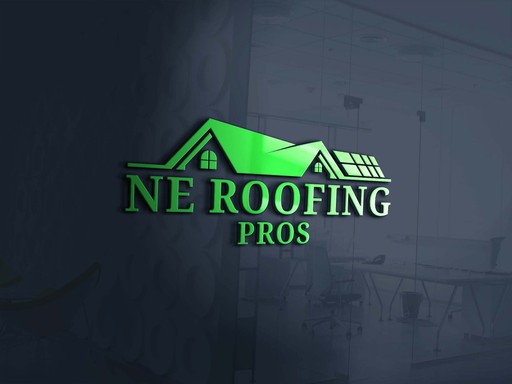Roof Replacement Can Be Expensive! Heres A Quick Guide To Financing Your Residential Roof:
July 16, 2024
There’s no question, roof replacements often become necessary at inopportune times. What do you do if your roof is old, suddenly fails, or is badly damaged in a storm– and you don’t have enough savings or insurance to cover it? There are a number of ways to solve the problem so that your home and family remain safe. Financing your roof replacement can relieve some of the financial burden and allow you to get the roof you need when the project can’t be put off any longer.

Ways You Can Pay for a Roof Replacement
Understanding your roof replacement financing options can help you decide what works best for you. Options to consider include:
Personal Loan: Personal loans can be used for any expense, including roof replacement. They are unsecured and provide you with a fixed amount repaid over a set term. However, their rates are often higher since there’s no collateral.
Credit Card: If your roof replacement estimates are relatively low and you can settle a substantial amount of the total cost within a year or so, then financing the project with a new credit card introductory 0% APR could be a perfect option.
Home Equity Line of Credit (HELOC): This type of financing uses your property as collateral. It allows you to borrow money against the equity your home has built over time. HELOCs offer a fixed amount of money in a lump sum and tend to have lower interest rates than other financing options.
Homeowner’s Insurance: If your roof was damaged by a covered peril, such as wind, hail, or fire, you might qualify for roof replacement financing through your homeowner's insurance. Check your policy for the deductible, especially for hurricane coverage.
Government-Insured Loan: You may qualify for FHA loans, including FHA Title I loans and FHA 203(k) standard loans. The Department of Housing and Urban Development covers these. They require lower minimum credit scores and offer extended repayment terms and fixed interest rates.
Additional Ways You Can Pay
Cash-Out Refinance: This allows you to replace your mortgage with a new one. You borrow more than you owe and use the surplus to finance your roof replacement.
Pace Programs: Pace stands for “Property Assessed Clean Energy Programs.” These programs available in selected areas of the country and are available to homeowners looking to improve energy efficiency in their homes.
Should You Pay for a New Roof with Cash?
Paying with cash is the best roof financing option. You won’t have to worry about interest rates or adding another monthly bill. However, paying out-of-pocket isn’t usually a realistic option for everyone, especially when it comes to a significant home upgrade like a roof replacement. If you’re unaware of a roof issue until it gets out of hand or your roof is damaged overnight from a storm, paying for a new one with cash may not be an option.
Are You Required to Pay Upfront?
You should never pay for a roofing job upfront. Any reputable roofing contractor will not ask you to pay the total amount before any work is done. Scammers and storm chasers are notorious for asking for money for repairs or replacements and then disappearing before starting or completing the job.
Also, asking for the total payment upfront may be a sign the roofer lacks the funds to complete the job correctly. Withholding full payment is a great way to ensure the roofing job is completed to your satisfaction.
Paying a deposit before the work commences is often reasonable. It indicates your commitment to getting the roof replacement job done. Most roofers will ask for a deposit ranging from 20% to 50% of the project total.
Benefits of Roof Financing
Many homeowners delay getting a new roof due to the financial costs involved. However, failing to replace your old, worn-out, or badly damaged roof quickly can cost you much more in the long run. Inadequate roofing poses numerous and potentially serious problems, including:
Excessive roof leaks and water damage
Structural issues and risk of collapse
Potential fire hazard
Mold growth
Rodent and vermin infestation
Reduced energy efficiency
Lower home value
Denial of roof damage insurance claim
Increased liability risks
Additional benefits of roof financing
It reduces annual insurance premiums, i.e. wind mitigation report or 4-point inspections
Government tax benefits for high wind resistant shingles
Once in a lifetime tax deduction for a complete roof replacement
Replacing your roof as soon as possible allows you to avoid unnecessary damage, protect your home from adverse weather events, and gives you peace of mind. Your savings account will be saved, and you’ll have some money saved for another rainy day.
Working with a Professional Who Offers Roof Financing is a Great Option
The benefits of working with a roofing company often outweigh direct lender financing. Due to economies of scale, companies that offer financing can find competitive loans and credit cards.
What’s more, roofing companies simplify the approval process and financing terms. They can streamline the process through payment plans customized to your budget and roof replacement expenses. And because roof companies do not have dealer fees, you don’t have to worry about escalated interest rates.
How to Start the Process of Getting Financing Through Your Roofer
Your roofing company will give you a choice to compare available loan options and find what will work best for you. Your roofer will show you the cost of getting a new roof and pre-qualify you within minutes. Be sure to read the fine print and make sure the monthly payments fit well within your budget.
If you’re planning to replace your old or damaged roof in the New England area, consider working with NE Roofing Pros. We want to make sure you can afford your roof replacement with ease. We work with different finance partners to seamlessly offer affordable monthly payments with no pre-payment plans.






